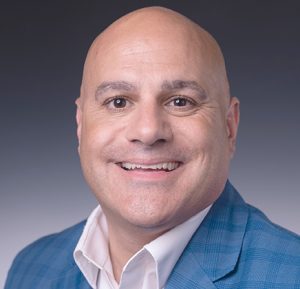As the children of Brian and Courtney Halye found themselves preparing for school one morning in March, they began to worry because their parents still had not made it out of their bedroom.
It was custom for Brian and Courtney to wake the children — ages 9, 10, 11, and 13. As they peered into their parents’ room, the children saw the lifeless bodies of Brian and Courtney surrounded by narcotics paraphernalia — dead of an apparent overdose of fentanyl, a synthetic form of morphine more potent than heroin.
The face of addiction has changed. This was a normal, middle-class couple with good jobs, living in the suburbs of a Midwestern town. Probably the last place you would look for a couple of drug addicts.
(Sponsored)

National Labor Relations Board Bans “Captive Audience” Meetings
Since 1948, the National Labor Relations Board respected an employer’s right to hold mandatory paid employee meetings during company time so that its views about unionization could be directly communicated

How CH Insurance’s BOOST Program Optimizes Group Benefits for Small Businesses
For small business owners, navigating the complexities of group benefits can be overwhelming. Between compliance regulations, cost considerations, and employee expectations, offering a competitive benefits package often feels like a
Neither one would return to his or her job, but the fact that Brian was a pilot for Spirit Airlines leads to speculation of whether or not he ever took fentanyl — or any other substance — while on the job.
A survey by the National Safety Council (NSC) taken in March revealed that 70 percent of businesses say that narcotic painkillers have affected their business. The NSC recommends incorporating the following steps to monitor the use of opioids in the workplace:
• A clear, written policy: Together with a company’s legal department, a policy should be put in place — similar to a company’s restrictions on the use of alcohol or illegal drugs.
• Employee education: Keeping in mind that the employee-patient relationship is a confidential one, employees should still be educated about the dangers of opioids in the workplace. The education process should include the dangers of operating heavy equipment while on medication, the risks of driving on pain pills, safe storage, and the fact that they should not share their medication with fellow employees.
• Supervisor training: Management should be current on the workplace’s prescription-drug policy and educated on how to identify possible employee abuse. Managers need to understand that a person with a disability is protected by the Americans With Disabilities Act and not infringe upon his or her rights.
• An Employee Assistance Program (EAP): The cost of helping an employee who might have a problem with opioid abuse can be much less than the cost of replacing that person. And everything that entails. Not only does a company suffer the loss of knowledge and production from an employee it might decide to terminate, it also is leaving someone in a dangerous position to himself or society in general.
• Drug testing: Research has shown that drug testing in the workplace brings down the number of accidents. Employers and those who are conducting the drug screens need to be aware that recently, with the easy access to synthetic urine over the Internet, those who are abusing drugs have found ways to skirt the system. Currently, only 14 states in the U.S. ban the sale and purchase of synthetic urine. There really is no other reason that a person would want synthetic urine other than to use it to beat a drug test. Businesses that do drug test employees on a regular basis are running into a problem with synthetic urine that drug abusers are using to beat tests.
Matt McCarty, M.D. is founder of Genotox Laboratories (http://genotoxlabs.com/toxprotect), a growing national reference lab providing medication-monitoring services through urine drug-screen confirmations and pharmacogenomics testing. He and a team of scientists at Genotox Labs developed ToxProtect, which matches a patient’s DNA to the DNA in a urine sample, and also identifies all types of substitute urine.



